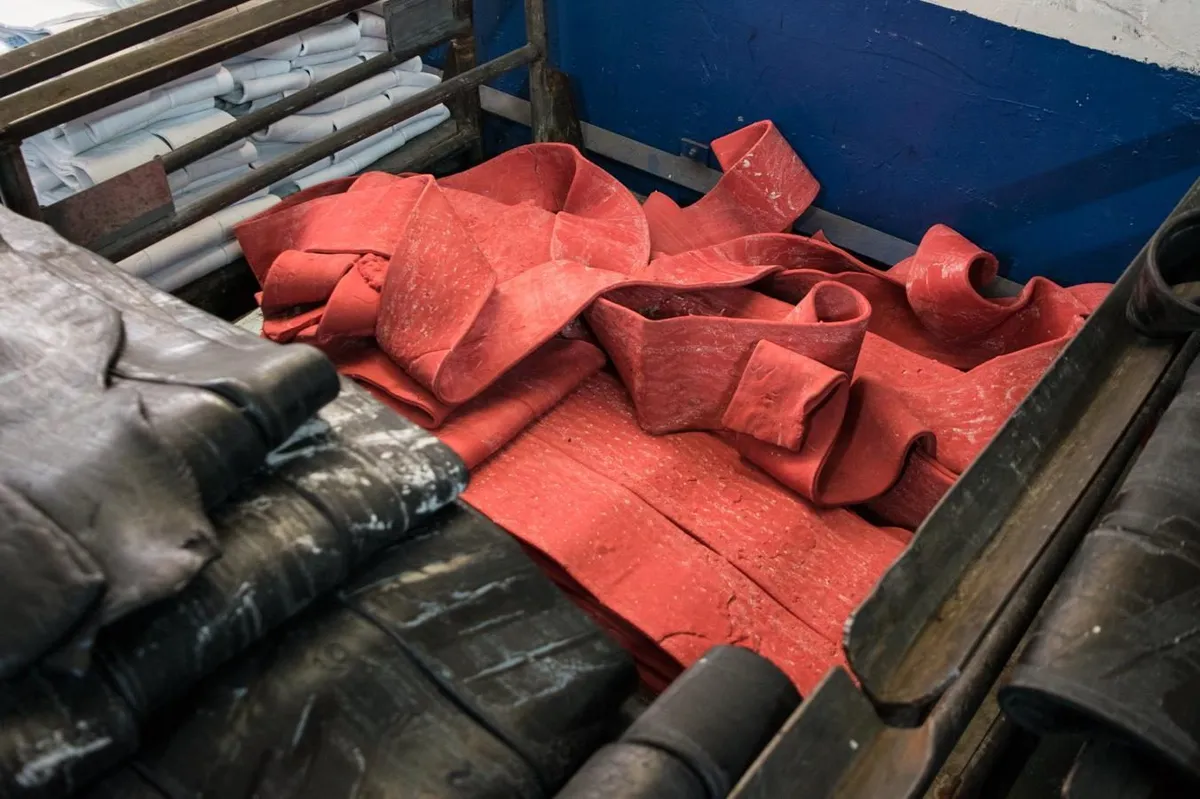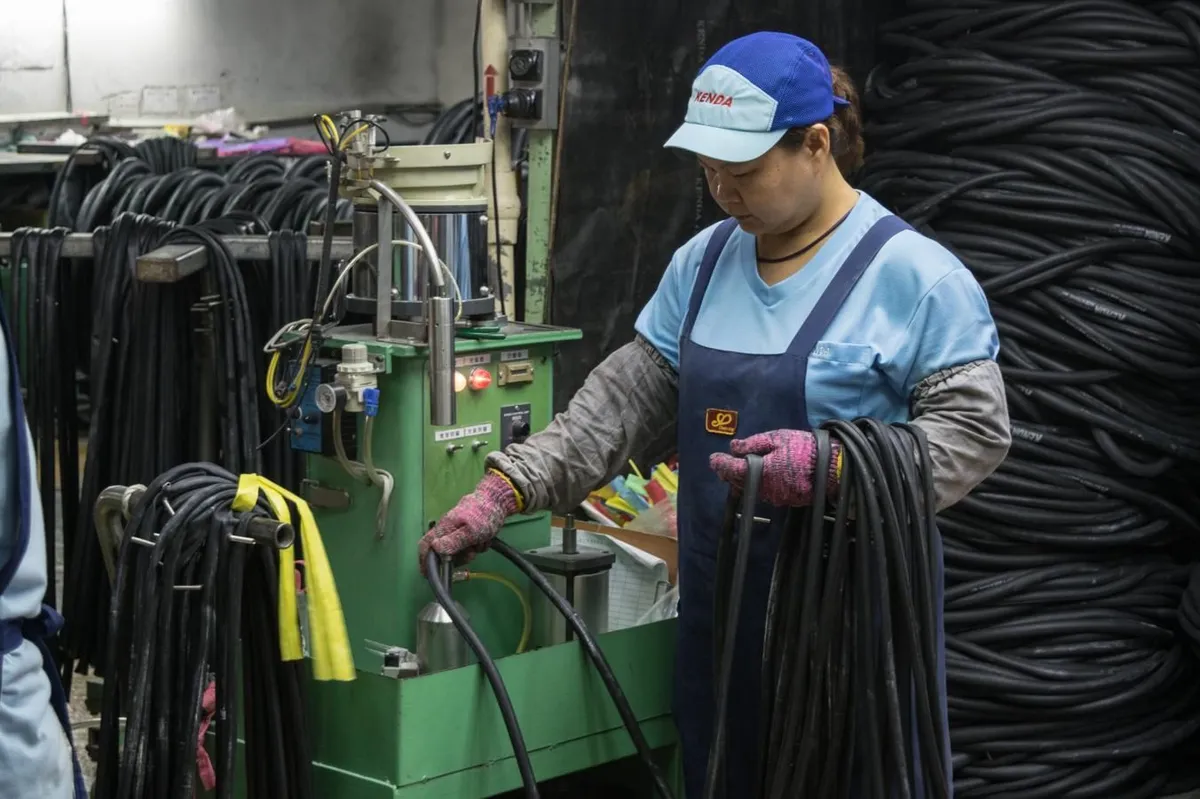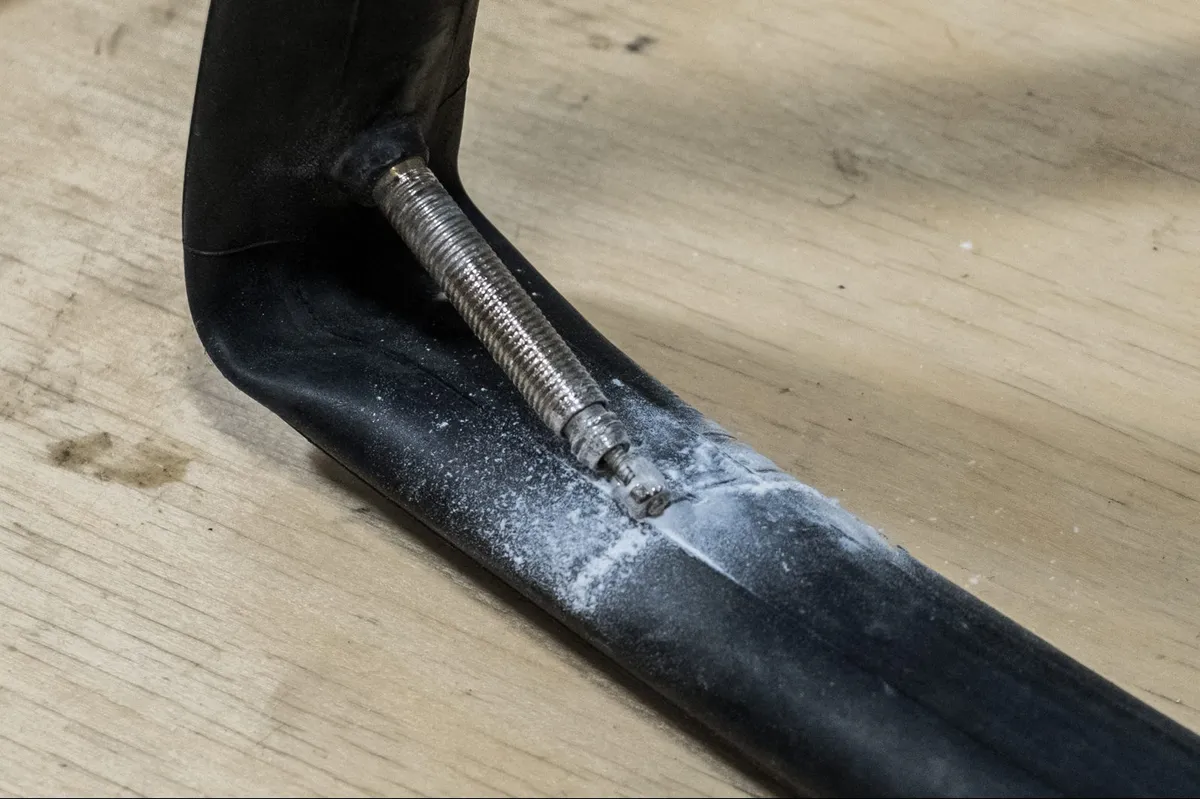Have you ever released air from an inner tube and wondered why it smells of fish?
Well, I certainly had, and after a furious Google session I failed to come up with a conclusive answer. So I contacted the good people at Michelin, Maxxis, Hutchinson and Pirelli find out.
- This is why it's time to stop using Presta valves
- This self-inflating inner tube is 'making the impossible possible', apparently
- How to repair a puncture
When I asked this question, I expected to have the most straight-up science answers from the very best rubber boffins out there, but the results could have not been any more varied.
We also tried to address one of the most longstanding rumours in the bike industry; you will have no doubt heard that crushed up fish bones are sometimes used instead of talcum powder to stop inner tubes sticking together, and here, we finally get to the bottom of this tall tale.
And lastly, since I was already asking a stupid question, I asked the industry at large whether there were any exciting developments in the world of inner tubes that we should know about. The answer probably won’t surprise you...
What exactly is it that causes inner-tubes to smell, and why is the aroma sometimes a little fishy?
Michelin says...
PR Manager for Michelin in the UK David Johnson asked his team and they “think that it’s related to the fact that tubes, unlike tyres, are a butyl-based compound” explaining that this “is what makes them effectively impermeable to air.”
His team went on to suggest that “fish excrete oils, so maybe one or a combination of the synthetic oils used in the tube have similar properties to a natural fish oil”.

Maxxis says...
Gwen Mouzon, a chemist for Maxxis, had a totally different explanation, stating that “one of the main causes of the slightly fishy smell that some inner tubes can give off is down to where in the world the natural rubber was extracted from."
He went on to explain that “the climate of the location where the natural rubber is sourced from can affect the smell of the finished product”.
Drawing comparison to the most unexpected of things, Mouzon claimed that this is “much like how the taste and smell of natural honey can differ depending on the geographic location from where it originated.”
Hutchinson says...
Audrey Foricheir, Chemistry and Materials Manager at Hutchinson, went sniffing in the good name of bicycle science and conducted a “smelling test… in our laboratory.”
Much to my disappointment, the results were inconclusive and Hutchinson found that “the results did not reveal any particular smell on the inner tubes, but a very light smell coming from the packaging carton.”
Pirelli says...
Fabio Meni, Manager of Compounding R&D at Pirelli, gave the most conclusive answer — or perhaps just the most sciencey one — explaining that “it is difficult to give a general answer as there are different processes and chemicals involved in inner tube manufacturing, different to each production plant and so to different brands.”
He went on to explain that “generally speaking, fishy-smelling products are aliphatic amines (such as terbutylamine, which is perhaps the worst).
"These molecules are not directly present in the formulation, but sometimes they may come as secondary products of curing reactions," he adds. "Alternatively, they could be used as stabilizers of releasing agents.”

Is it true that crushed up fish bones are sometimes used instead of talcum powder inside inner tubes?

Maxxis says...
Gwen Mouzon of Maxxis answered this question directly, saying that “there’s a rumour going round in the industry that crushed up fish bones are being used instead of talcum powder, but that’s an old wives tale!”
While I’m inclined to believe Maxxis, I’m surprised the other brands we spoke to weren’t quick to put this rumour to bed.
Maybe ‘big tyre’ is actually using fish bones and this is the secret they don’t want you to know?!
Are there any hot new developments in the world of inner tubes that our readers should know about?
Being a pretty well-established technology, it’s not surprising that we didn't have a single answer to this stupid question.

If you've got this far and have decided you don't want fishy-smelling tubes, don’t want to go tubeless and want to go fast, you can always buy latex tubes, which are odour free.
Are there any amateur chemists out there who want to weigh on this most important of questions? Or have you never actually smelt a whiff of tube before? As always, please share your thoughts in the comments below.
